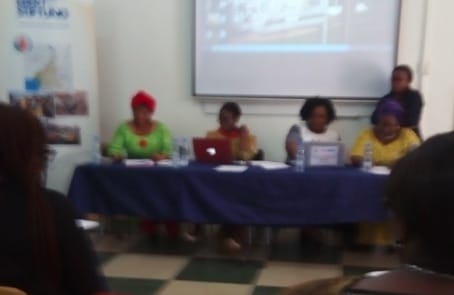“The role of women in conflict resolution and in the construction of a lasting peace in Cameroon”: This was the theme of the program “Ladies Hours” held by the Friedrich Ebert Stiftung for Cameroon and Central Africa in Bastoson July 24, 2018. The program is a platform for exchange, information and training of women on the issues of the hour. Twenty-five women decision-makers from the government, political parties, civil society, cultural and professional associations and the media were invited to this quarterly meeting. They shared their experiences and worked for reforms to improve the status of women to be better partners in building sustainable peace and development in Cameroon.

What role do women play in today’s conflicts?
An inventory of women’s activity in the current security situation in our country indicates that it is women and girls who suffer the most in conflicts because of their vulnerability: poverty, rape, destruction of their homes. sometimes their relocation, loss of loved ones. Women are absent in decision-making bodies. They are not involved in socio-political activity and do not confront the different crises such as Boko Haram and the Anglophone crisis. Women in the English-speaking regions have formed an awareness and mediation group for a return to calm.
What can women do in building lasting peace?
The education of a society is mainly based on women. They are life givers, protectors of life, initiators of life. They therefore have a very great responsibility in the culture of peace through the initiation of children and society to justice, to peace. The culture of peace is a set of acts and attitudes that give precedence to social harmony and that have as a prerequisite social justice. Women must therefore be agents of peace and actors of peacebuilding in Cameroon through their attitudes, the language they hold, the positions and analyses they make of different situations in life. Justice and equity must govern their actions. For this, they must use all the means at their disposal to build peace in Cameroon, and advocate for the protection of women and girls in times of conflict. In addition, women must work together to engage in an inclusive dialogue on the culture of peace.
In conclusion, an invitation was made to women decision-makers for awareness-raising and ongoing training of women members of their organization on the context and the need for women to be key players in building lasting peace in the world in general and in Cameroon in particular.

Leave A Comment
You must be logged in to post a comment.